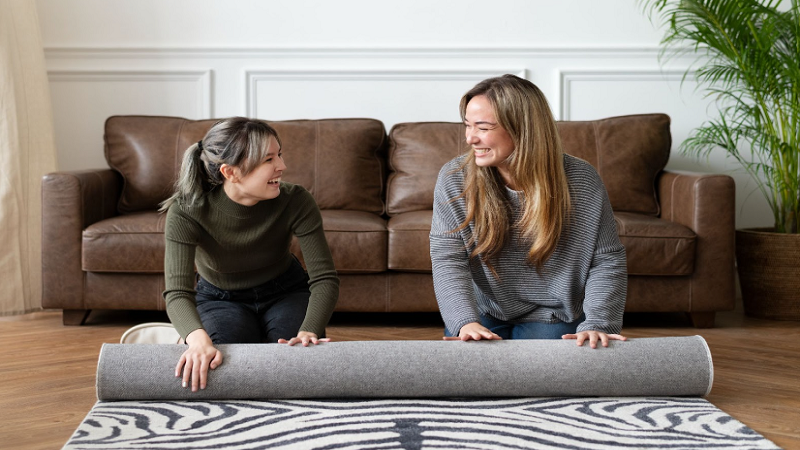Student life has many ups and downs. Besides hitting the books and studying for test after test, there’s no time for anything else. Students
Sometimes, anxiety can get the better of you. That pit in your stomach gets bigger until you find yourself frozen in fear.
The bright side is that you’ll reminisce on your college days and say, “I can’t believe I got through that.” Unfortunately, you don’t have the emotional capacity to think that far.
Anxiety is a thief that steals our happiness and replaces it with pessimism. For the students, the heavy burden and pressure of completing their studies further exacerbates those negative feelings.
And it’s not only anxiety. Burnout and depression account for 80% of college students in the U.S. struggling emotionally.
We don’t have all the answers but we can provide you with coping tips to alleviate your anxiety.
Understanding Anxiety
Anxiety is a perfectly normal stress reaction. It becomes a problem when that reaction becomes a real fear.
The American Psychiatric Association says anxiety disorders are the most common mental disorders. Still, it’s little help to those in the throws of a panic attack.
People with anxiety often avoid situations that could trigger an episode. Students in particular are prone to anxiety disorders. Finances or a looming test, driven by academic pressure is a lot for anyone to handle.
Common signs of anxiety in college students are:
- Restlessness
- Difficulty sleeping
- Difficulty focusing
- Increased heart rate
- Trembling or shaking
Breathing Exercises
Test anxiety is probably the worst feeling. No matter how many times you’ve gone over your study work, that impending sensation of doom doesn’t disappear.
Have you taken a deep breath, counted to five, and exhaled? Mental health experts suggest breathing exercises as part of their tips for test anxiety. It redirects your anxious thoughts and brings you back to a calm state.
You don’t have to put much thought into it. Just breathe deeply and be aware of your heart rate decreasing and your blood pressure lowering.
Common breathing exercises are belly breathing and the 4-7-8 technique: inhaling for four counts, holding for seven, and exhaling for eight.
Try setting aside a few minutes to practice every day. Daily practice will be more effective when you use it on exam day.
Structured Routine
You know the saying goes that children thrive on routine? The same applies to adults. Now that you’re in the young adult stage, you need routine more.
A structured routine ensures you keep to a daily schedule. This reduces uncertainty and the chances of a panic attack.
Predictability means no triggers. Knowing what the day holds makes you feel more in control and less anxious.
Positive Self-Talk
Looking on the bright side can put things into perspective. That’s why positive self-talk is so important.
The activity is an exercise in affirmations. You are your biggest cheerleader. There’s no time to be coy or humble. Say, “I’m happy for myself” and “I’m doing well.”
Medical News Today says positive self-talk lessens anxiety and symptoms of obsessive-compulsive disorder (OCD).
The publication also cites a study showing that students who practiced self-affirming statements before a presentation experienced less performance anxiety than those who didn’t.
Incorporating a Healthy Diet
Certain foods can be stress-busters and boost serotonin levels. The chemical regulates various bodily functions such as mood and behavior.
According to WebMD, complex carbs are a great source of serotonin. Include whole wheat bread, pasta, and oatmeal in your diet.
Fatty fish rich in omega 3 should be on your shopping list. Salmon and tuna are packed with the nutrients needed to prevent a surge in stress hormones.
Do you want to know why Popeye was a fan of spinach? Magnesium is important for bone health. If your diet lacks magnesium, it could lead to headaches and fatigue, triggering an anxiety episode.
Exercise
The benefits of exercise go beyond stress relief, explains the Anxiety & Depression Association of America. A 10-minute walk can yield the same results as a 45-minute workout, adds the organization.
Although exercise has a positive effect on some people, for others it may not affect their mental state at all. Nonetheless, everyone should be encouraged to stay physically healthy.
Set daily goals and be consistent in your exercise routine. Start with walking every day for 20 to 30 minutes. Recruit an exercise buddy to motivate you and hold you accountable.
Reducing anxiety won’t happen overnight. But by incorporating a few or one of the above tips, you’ll find that heavy feeling on your chest dissipating. Remember, there are some things out of your control. Instead, concentrate on those that you can.




